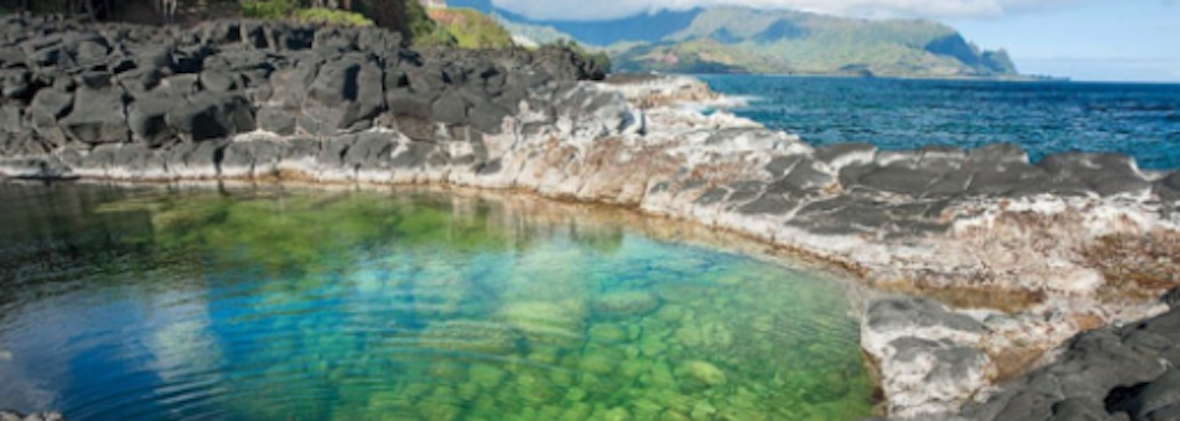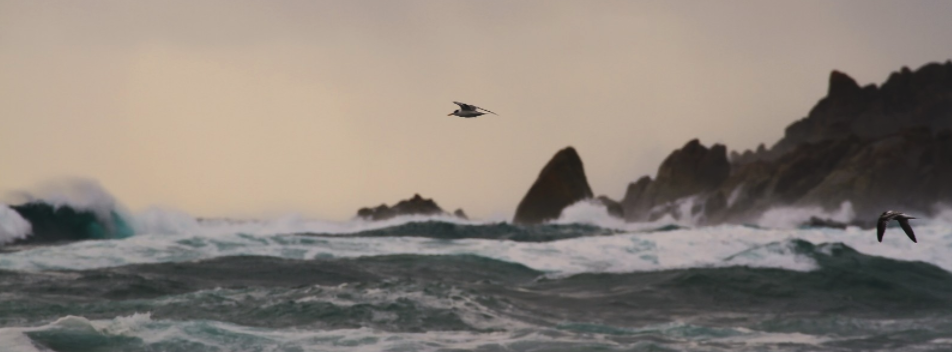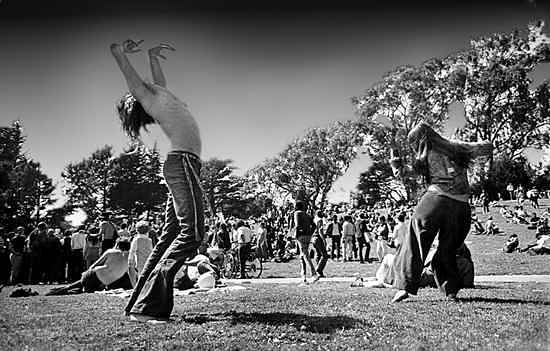
[o]
BOY WITH WATERCOLOR HAIR
Down shore, another tern
listing on the tidepool tilt,
headless
one wing waving, tremulous,
good-bye good-bye
Thirty strides, another headless bird, then more
strung between strands of kelp
at equal intervals,
as though in sympathy with some aborted plan
From pool to pool a red pail leaps—
small arms flashing like shiners
A boy’s head burns
a shivering yellow
like a watercolor sun
When I was small a red octopus sprang from these rocks
after a kelp-colored crab
Its tongue crushing the shell sounded like your teeth inside your heart
Knee-deep, the boy clatters his rabble of hermit crabs—
Pink fingers churn and lift the shells to the sun—
their whorls glow like young ears
eyeballs waggle on short stalks, knuckled legs
Then my shadow darkens
his watercolor hair
Words written on many signs
fall from my mouth,
marring his gladness
As if he understood algal blooms
and why we mustn’t trouble
the sea’s creatures
Red blossoms savage his cheeks
I’m not even touching them, he explodes,
fists thrashing the water’s face
— a swinging of snot
His shrieks swing like gulls grabbing up small claws
hurling one after another
at my feet
From the bluff, looking down at the bulge—
harbor seals bank like dark cumulus
not rumbling — shaking with seizures
What good is looking back
to see if the boy is splashing his noiseful pail
as though each creature were clamoring simply for his joy
as though the tide’s roar were his own endless companion
and the least treasure caught in his fist
worth fighting for?
Beside him I am a grain of sand.

[o]
LEAST TERNS
Down the bluff to the crystal pools
into the nave of stars into the garnet claws
into the urchin’s silver spines
moving down the downshore tilt
a dead tern wracked in the black stone tide
undulates in her torn gown
she has no head
she has no head and must recall
her way by trailing coral feet across the tilt
another bird she has no throat
she has no throat and must pipe
through wormholes in her bones
another dead against dark stone she has no wings
she has no wings and glides and slaps
breast-up across black rock
twisting on the beating tilt she has no wings her wilted gown
her coral feet she can’t recall her bones must pipe
pearlescent orb she glints
repeats repeats so many pearls the sea blinks
the sea can’t stop all that we do
the sea repeats the pearls repeat
the sea laves its hands of us
it takes us back it gives us all its treasures
we give nothing
when the sea has nothing left to give
it gives again if only our dread charms
across its jilted heart

[o]
IN BERLIN
On a clean square of grass
where once a pair of kneecaps
were thwucked out of upright,
picnickers guttle sour pints.
Sunshine washes our face, blisters
some. Smoke trees billow
beside a couple belting out karaoke.
They wear cut-offs; all day they cry
out the same contagious refrain,
Let’s do the time warp again.
Their song rains down on us, collects
like ash in our throat.
We too want to sing, some
of our mouths slip open,
some teeth lengthen.
Sing, some, for the warped time again.
Sing, burnt tongues,
Sing to crack the devil’s knuckles,
Sing, eyes of sheetmetal,
Sing, while your song fills
the ears of forgetful children.
Sing as they kick
a chunk of the old wall
into the gulch. Sing as it rolls,
as it buffets the slope,
stopping where the creek explodes
in black-eyed Susans.
Those in its path are flattened.
Some blaze up. Sing,
your children are howling.

LIS SANCHEZ FILLS OUT THE WILD CULTURE SCRIBBLER'S QUESTIONNAIRE
1 What is your first memory and what does it tell you about your life at that time and your life at this time?
I was about two and a half years old and was with my father. It was a simple moment, a common one, but to tell it here, now, would ruin my happiness. I’ve been trying to write about it for years; one day, in a moment of deep gratitude, it will flow from my pen. Can I let you know? [Yes, please. And thank you . . . — The Editors.)
2 Can you name a handful of artists in your field, or other fields, who have influenced you — who come to mind immediately?
My most profoundly felt influence was Judith Ortiz Cofer, my teacher, my mentor, my friend. She was known as a poet, novelist, and essayist — she could do anything. But it was her humility and generosity that took me aback. All writers — hell, all living creatures — need that kind of angel on their shoulder. Godspeed, Judy.
3 Where did you grow up, and did that place and your experience of it help form your sense about place and the environment in general?
There were a lot of trails near our house in the Bay Area of California, and my brother and I would ride horses alone all summer, through the yellow-grass hills. Later, in Alaska, we ran loose through the woods with our friends; we swam, we ice-skated; we fought rock and stick battles from behind fallen trees. I suppose those experiences made me see the natural world as a glorious playground — but also as a beating heart.
4 If you were going away on a very long journey and you could only take four books — one poetry, one fiction, one non-fiction, one literary criticism — what would they be?
Since it’s a vacation, I would only take books that make me laugh or fill me with wonder. García Márquez’s One Hundred Years of Solitude; all of Flannery O’Connor’s stories; Anthony Trolllope’s The Way We Live Now; Carson McCullers’ The Ballad of the Sad Café.
5 What was your most keen interest between the ages of 10 and 12?
I loved everything I could do with my body. Everything outdoors. But I had no real focus, unless you count the entire sixth grade I spent trying to score my first joint.
6 At what point did you discover your ability with poetry?
I was thirty years old before it dawned on me.
7 Do you have an ‘engine’ that drives your artistic practice, and if so, can you comment on it?
Absolutely. I’ve been living with Lyme Disease, a tick-borne infection, for twenty-six years. Only in the last eighteen months have I recovered enough cognitive clarity and persistence to work at writing again. Every day that I can write is a gift; that’s the only motivation I need.
8 If you were to meet a person who seriously wants to do work in your field — someone who admires and resonates with the type of work you do, and they clearly have real talent — and they asked you for some general advice, what would that be?
Always be kind. The rest will follow.
9 Do you have a current question or preoccupation that you could share with us?
One could say I’m preoccupied with my personal battle against Lyme Disease, on the rise due to global warming.
10 What does the term ‘wild culture’ mean to you?
Hmm, I’d have to say it’s about keeping one’s mind unfettered, about being willing to see things in different lights — our imaginative landscape, as well as our earth.
11 If you would like to ask yourself a final question, what would it be?
I would ask others, and have them ask me in return: “How are you, really?”

LIS SANCHEZ has writing appearing or forthcoming in Prairie Schooner, Salamander, New Orleans Review, The Bark, Spillway, Puerto Del Sol, Lunch Ticket Amuse-Bouche, and The Boiler. She is the recipient of Prairie Schooner’s Virginia Faulkner Award for Excellence in Writing, the Nimrod Editors’ Choice Award, and The Greensboro Review Award for Fiction. She lives in Charlotte, North Carolina.

Add new comment